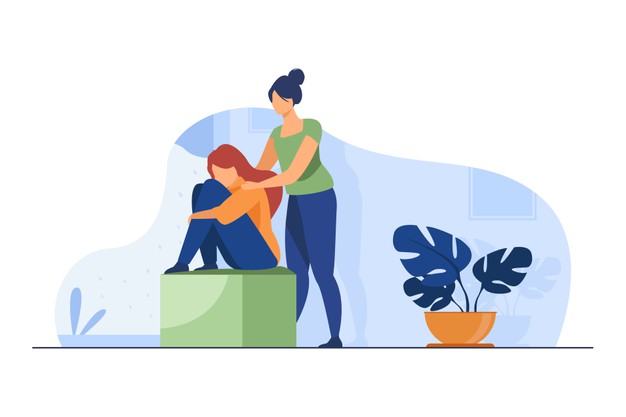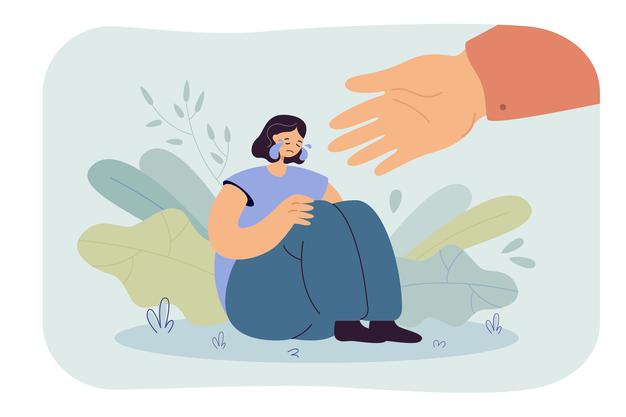A Quick Guide
Many people wonder ‘Can we learn empathy?’. The answer is two-fold. Almost everyone has an innate empathic ability. It is more pronounced in some people compared to others. Nevertheless, anybody can learn empathy and improve their skills through motivation and a willing attitude to learn. It must be mentioned, however, that learning empathy is a slow and gradual process that might not happen overnight. Developing skills to understand the emotions of others requires consistent investment. The results are promising only if one persists in this journey.
What is Empathy?
Empathy is the ability to understand the world from another person’s perspective. This includes being able to pick out their thoughts & emotions and communicate this understanding to them. Doing so helps us to deepen the relationship, ease their pain, resolve conflicts and support them during their time of need. In short, empathy is an integral social skill.
Watch: [The Importance of Empathy]
How to Learn Empathy?
Due to various benefits associated with this ability, many people want to improve their empathic skills and deepen their relationships. Training seminars & workshops on conflict resolution, marriage counseling, etc. are all based on the foundation of empathy, active listening, and role-playing. Thus to learn empathy, one needs to learn to listen actively, respond appropriately and maintain an attitude of compassion for the other person.
In order to learn empathy, the following strategies can be employed.
1. Practice listening without interrupting
Empathy requires one to practice listening to others without interrupting. When someone is upset and telling you their problems, you need to express an attitude of listening through your emotions, body language, and behavior. Give them your complete attention, make eye contact, and hold back any opinions or comments. Many people make the mistake of passive listening; they listen just for the sake of responding later on. Try to avoid doing this and be present with them.
2. Clarification
Clarification or asking for an explanation for ambiguities from the other person helps to communicate your attitude of wanting to know them. To do this, paraphrase what the other person has said. Ask whether you have understood them correctly or not. Saying what they have said in different words will help to clarify any errors in understanding.
For example,
Mark: ‘When I got my exam results, I froze and could not say anything‘.
Jessica: ‘So you are saying, you were so shocked upon receiving your results that you were at loss for words? Is that correct?’
Here, Jessica’s restatement of Mark’s message and inquiring for clarity at the end will help to clarify any misunderstandings.
3. Improve your vocabulary for emotions
Check out the emotion wheel and keep a copy of it on your phone for easy access. Improve your vocabulary for different emotions and learn the appropriate usage depending on the intensity of emotion felt by the other person.

4. Pay attention to non-verbal cues
Once you have mastered the art of responding to people’s feelings, pay attention to the other person’s body language. Notice how each emotion is associated with a particular facial expression, tone, body language, and word choice. For example, In sadness, one’s eyes become wet, body language exhibits low energy, tone of voice is heavy & low, and the person chooses particular words to express his/her sadness.
Learning to establish this link between body language and emotions will help you to identify their emotions even before they speak.
5. Use your imagination
Try to imagine stepping into the other person’s shoes by coming up with different scenarios and living their experience. Make an attempt to understand their thoughts and feelings. For example, while watching a movie with a friend, discuss how the main character might be feeling and thinking by supporting your argument with their dialogue and nonverbal cues.
6. Practice empathy
Use empathy in your personal life by practicing it in daily conversations. Give people your attention, and identify their thoughts and feelings. Use clarification, paraphrasing, and active listening during this process. Practice using words for emotions by applying them to yourself and eventually to others e.g. I felt helpless or I felt disgusted etc. Mirror the body language of others while listening to them. You may even hug or hold the other hand if they are comfortable and consent to it.
Practice these skills with a friend, a relative, or a family member. Mock sessions or role play are especially helpful for consolidating skills of empathy.
7. Practice meditation
Learn to meditate for at least 5 to 10 minutes daily. During this, breathe deeply and practice repeating positive affirmations to yourself. Once you learn to feel and say good things to yourself, extend this to strangers and send them positive vibes. Try to see the world from a kind and compassionate perspective. Observe different people outside and imagine their thoughts and feelings. Notice their body language to enhance your understanding of them. Send them positive vibes and even do kind acts for them if possible.
8. Notice the commonalities
Usually, we focus on how people are different from each other. Try to adopt a different approach and see what makes them similar. How all people share certain commonalities and are linked with each other. This will help you to develop an attitude of tolerance and love towards others. Moreover, having common grounds with someone makes it easier to understand their perspective and feelings.
9. Be mindful
Try incorporating mindfulness into your daily activities. Utilize all of your senses while doing something and try to be aware of what’s going on in your body. Notice how other people contribute to any simple action that you do. For example, while having a cup of milk, think about how it has arrived from a factory. The workers ensured the purity of the milk and looked after the health of the cow. The driver transported the milk to the storeowner who eventually delivered it to you. Think about how so many living beings brought you the joy of having a warm cup of milk. Extend them your gratitude.
10. Read stories
Make book-reading a habit. Through fiction, learn to understand the internal world of any character especially their emotions, thoughts, motivations, desires, etc. Through this, you may enrich your understanding of human beings.
11. Do volunteer work
Volunteer work in different areas can also be helpful to develop an empathic attitude. Seeing other people less fortunate than you, serving them, and giving back to the community can be an enriching experience.
If you want to learn more about being empathic, check out our series of articles on how to be there for people in distress.



 Effective & Ineffective Attending Behavior: How to be there for someone in distress
Effective & Ineffective Attending Behavior: How to be there for someone in distress  What is Attending Behavior? The skills of how to be there for someone
What is Attending Behavior? The skills of how to be there for someone  Learn How to be there for someone in distress: Dos and Donts
Learn How to be there for someone in distress: Dos and Donts